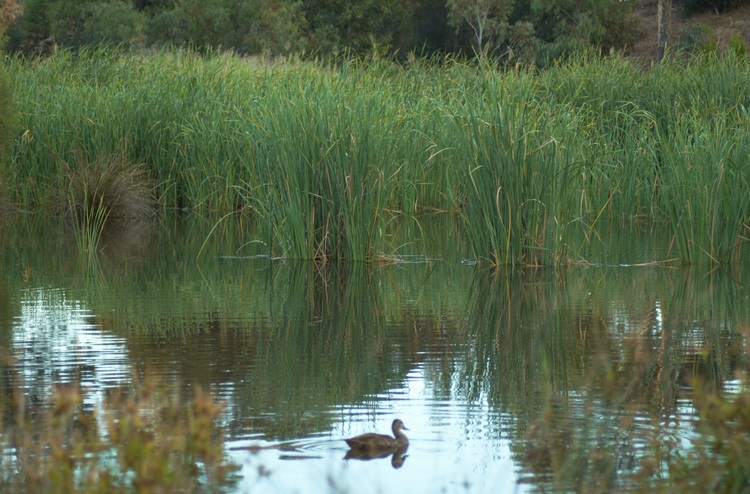The curmudgeon agrees that this probably was W's best moment in office.
If Bush wants to keep catching bass and other game fish after he finally relinquishes the presidency in 2009 (seemingly so far away), he'd better hope the new Supreme Court he created rules the right way on one of its first big environmental cases.
Rapanos v. U.S. and Carabell v. Army Corp. of Engineers, combined cases attacking enforcement of the 1972 Clean Water Act, were argued on Feb. 21, Alito's first day of hearing oral argument on the Court. Both cases were brought by property owners challenging the federal government's denial of permits to develop wetlands on their property.
(In Rapanos, the landowner wanted to develop a shopping center on Michigan land that includes a manmade drain connecting to a creek that connects to a navigable river 20 miles away. Mr. Rapanos has defied a number of court orders and filled in the wetlands on his property--if he loses, he may do jail time (let's hope!). In Carabell, the landowner wants to build condos on property separated from a waterway by a manmade berm.)

These are super critical cases in which new justices Roberts and Alito are likely to be the swing votes. A ruling could come any day now.
They are also tough cases. The issue is just how far the Clean Water Act extends--is it limited to "navigable waters" of the U.S.--which would be only about 1% of all wetlands--or does it extend broadly to "adjacent wetlands"--essentially anything ultimately connected to navigable waters.
Under the broader interpretation, just about any property that drains into a stream is subject to the act. That's a lot of property.
Yet, that is exactly what the ruling should be, otherwise the Clean Water Act will be completely meaningless. Today, we know a lot more than in 1972 about the interconnectedness of our waterways and the critical importance of wetlands to our children's heritage. Indeed, what I do in my yard ultimately has an impact on the Chesapeake Bay. We simply can't let landowners engage in activities that ultimately destroy critical resources for all of us simply because they are not right next to a "navigable" waterway.
Put another way, resolution of these cases is actually quite simple: we MUST protect our wetlands from pollution and destruction. Even if it means some restrictions on development, that is far better than the alternative, which is complete destruction of our already declining wetland habitats.
(The Curmudgeon is actually quite big on compromises and "balancing" in public policy; here, the best policy is broad JURISDICTION over land that affects waterways, while using reasonable, balanced regulation of those lands to permit sustainable development.)
 Jared Diamond (of Guns, Germs & Steel fame), in his latest book, Collapse, convincingly sounds the alarm for environmental activism now in order to prevent a societal collapse later. Without the broad regulatory powers that Congress clearly intended to safeguard over rivers and streams, we will face ever more severe challenges in the years ahead.
Jared Diamond (of Guns, Germs & Steel fame), in his latest book, Collapse, convincingly sounds the alarm for environmental activism now in order to prevent a societal collapse later. Without the broad regulatory powers that Congress clearly intended to safeguard over rivers and streams, we will face ever more severe challenges in the years ahead.Let's hope W picked justices who share his enthusiasm for sport fishing!


No comments:
Post a Comment